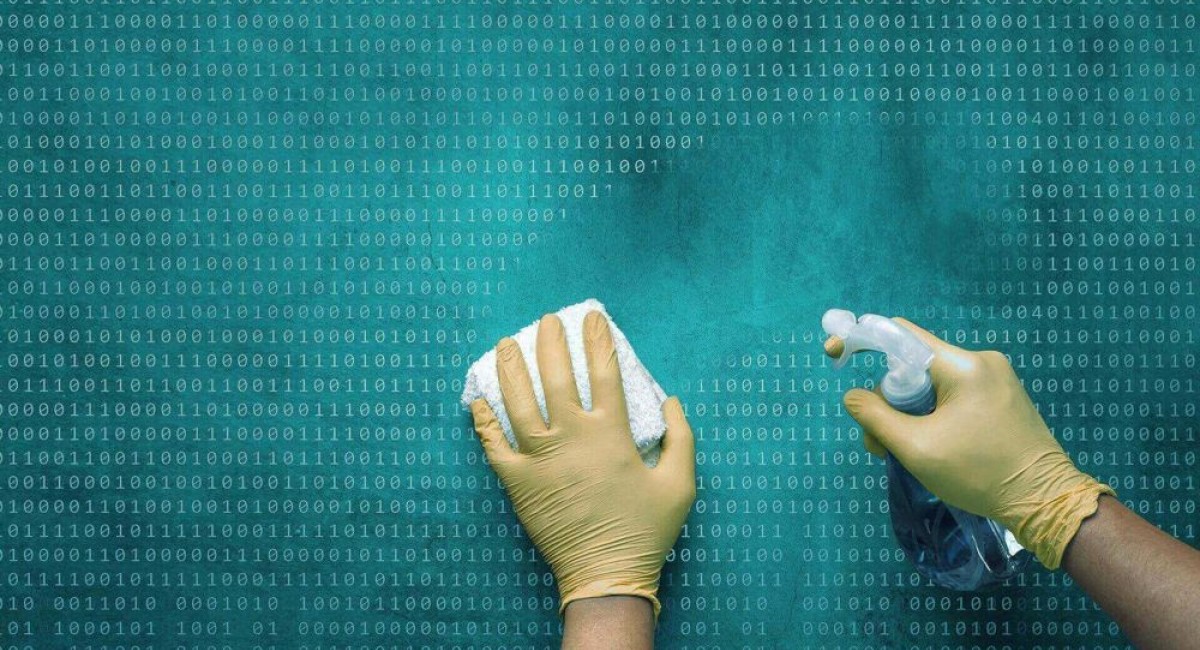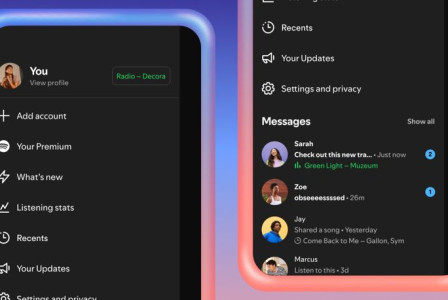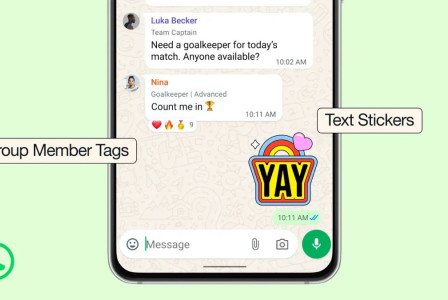SEARCH
The 7 reasons why cybercriminals are after your personal data

SHARE IT
Every time we connect to the Internet, we leave a digital footprint behind. In the modern age, our lives are intertwined with digital technology and our digital footprints are constantly growing. Some of the data we create, such as social media posts or online purchases, can be of immense value to cybercriminals lurking in the shadows of the internet. The more online services we use and the more information we share, the more likely our data will fall into the wrong hands. As we all face potential risks, from financial scams to extortion campaigns, the importance of protecting our personal data cannot be underestimated.
Understanding the value of personal data
First of all, what exactly do we mean when we talk about personal data? Simply put, it includes any information - such as names, dates of birth, social security numbers, home addresses, phone numbers, email addresses, health data, financial data, photographs, biometric information, location data, and even IP addresses - that can be used, either individually or in combination with other information, to identify a specific person.
So what is it that makes cybercriminals go after our personal information? These are the 7 most important reasons.
1. Financial Fraud: Protect Yourself from Financial Fraud in the Digital Age
In today's digital age, financial fraud is a widespread threat that affects us all. Our personal data isn't just information - it's the gateway to our financial assets. This makes it a prime target for cybercriminals.
Surely you know how important it is to protect your bank card details. But it's equally critical to protect any kind of personal information. Why? Because this information can open the door to unauthorized access to your bank accounts.
This doesn't just apply to financial information. Cybercriminals can exploit a wide range of personal data - from names and addresses to Social Security numbers and our online shopping habits.
Consider this: By combining pieces of your personal information, cybercriminals can impersonate you. They can tamper with your accounts and make unauthorized transactions. The consequences can be far-reaching and severe.
2. Identity theft: Protect Your Identity from Theft
Imagine a stranger using your identity information for malicious activities, putting not only your money but also your reputation and credibility at risk. Identity theft is a serious threat that can affect your personal well-being. Cybercriminals who manipulate stolen identity information can commit a range of malicious activities "in your name," threatening your financial stability and personal integrity.
Why is it important? The more data fraudsters obtain, the larger their arsenal for all sorts of malicious activities. They can deceive your contacts with deceptive campaigns, create fake social media profiles and commit various forms of fraud, including tax, insurance and online shopping fraud.
3. Ransomware: Protect Your Data from Ransomware and Extortion
The threat of ransomware has been one of the most frightening dangers in the digital world for years. Imagine being suddenly locked out of your devices and data - personal documents, sensitive business data, and irreplaceable memories. The psychological impact is intense and immediate.
What happens when you fall victim to ransomware? Cybercriminals lock up your data and demand a ransom to release it. Faced with this tragic situation, many victims feel compelled to give in to their demands, paying large sums of money in the hope of regaining control of their digital assets.
This reality underlines the importance of strong cybersecurity measures and proactive defence against the ever-evolving threat of ransomware attacks.
4. Dark web : Protect your Personal Data from being sold on the Dark Web
Your personal data has become a lucrative commodity in the dark underworld of the internet, known as the dark web, and on social networking platforms such as Telegram. Stolen login credentials, social security information, and even children's personal data are all for sale.
Why is this so alarming? In this illegal market, cybercriminals can buy and sell stolen data and carry out further malicious activities. These illegal transactions create a cycle of exploitation that fuels the thriving economy of the dark web.
What is the impact for you? If your personal data falls into the hands of these criminals, they can use it to steal your identity, empty your bank accounts, or carry out other scams in your name.
5. Account theft: Protect your Bank Accounts
Account theft is a quick and dangerous way for criminals to infiltrate various aspects of your online life. From social networking sites and email services to other platforms, criminals can exploit your access to commit fraudulent activities and spread malware.
How is this done? Attackers can crack your passwords either due to a data breach at a company, account or service that stored your data, or by using the information you voluntarily share online. Often, simply by combining names, surnames, birth dates or other personal information, criminals gain access to your accounts.
What can you do to protect yourself? To reduce these risks, it is extremely important to protect your accounts with strong security measures. Use strong and unique passwords or passphrases for each account. Implement two-factor authentication (2FA) where possible. These preventative measures act as critical barriers against account theft and help protect your digital assets from threats.
Safety is in your hands. By taking these measures, you can strengthen your defences against attackers and protect your digital identity from theft. Securing your accounts is key to keeping your online information safe and secure.
6. Phishing : Protect Yourself from (Spear)Phishing Messages
Phishing, also known as online phishing, is a common cyber threat. Its most targeted form, spearphishing, can use your personal data to create highly persuasive messages targeted specifically at you or your organization.
How does spearphishing work? Cybercriminals meticulously study their targets to collect information such as names, job titles, partnerships, and even personal interests or activities. With this data, they can tailor their messages to increase the likelihood of success.
Examples of spearphishing attacks:
- A scammer who knows what you buy online may create a convincing email that appears to come from a well-known commercial company, asking you to update your details or download a file.
- In other scenarios, the attacker may impersonate a colleague or supervisor at your company, using information from publicly available sources to bolster the credibility of the message. Phishing, especially its targeted form known as spearphishing, can leverage personal data to create persuasive messages directed at specific individuals or organizations.
7. Industrial espionage
Do you think cybercriminals are the only ones who care about your personal data? Think again. Rival companies, governments and other groups have their eyes on that data too. And why? Data stolen from employees can become tools for attacks.
Think of your personal data as a tool in the hands of an attacker. From industrial espionage aimed at gaining insights into competitors' activities to campaigns targeting critical infrastructure and sensitive government systems, the risk is everywhere. It's time to understand the value of protecting our personal data and cybersecurity in general.
7 tips to protect yourself
It's important to protect our personal data in cyberspace. Even if you're not a cybersecurity expert, there are a few simple steps you can take to protect yourself.
Are you wondering what they are? Let's see:
- Be wary of emails: avoid opening emails from unknown sources or clicking on suspicious links. Do not disclose personal information via email.
- Be careful what you share online: don't disclose excessive information on social media or other online platforms.
- Do not share information on social media or online social networking sites: Use unique and strong passwords for each of your accounts, and change them regularly.
- Enable two-factor authentication: add an extra layer of security with two-factor authentication on all accounts that support this feature.
- Control your financial activities: Regularly monitor your bank accounts, credit reports, and other financial accounts for any unauthorized activity. Report any suspicious transactions or signs of identity theft immediately.
- Act immediately: If you receive a password breach notification, change it immediately.
- If you receive a security breach notification, if you receive a security breach, immediately report it: Install and update security software on all your devices to protect against attacks.
And don't fall into the pit of 'But I have nothing to hide!' or 'They won't bother with me!' or 'I don't post anything important that would interest hackers!'
Statements like these reflect common misconceptions about the importance of personal data and cybersecurity.
We hope that the above evidence will help demonstrate how valuable even seemingly innocent information can be to malicious actors.
MORE NEWS FOR YOU

 Help & Support
Help & Support 

